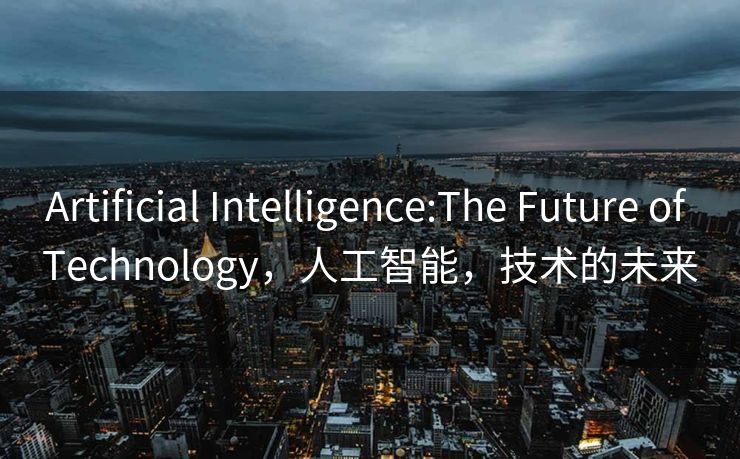人工智能是技术未来的发展方向,它将引领科技领域的革新和进步,人工智能的应用范围广泛,从智能家居、自动驾驶汽车到医疗、金融等领域,都将受益于人工智能技术的不断发展,虽然人工智能的崛起也带来了一些挑战和争议,但它无疑已经成为现代社会不可或缺的一部分,其潜力巨大,未来发展前景广阔。
In today's rapidly advancing technological world, artificial intelligence (AI) has become a prominent and pivotal aspect. The evolution of AI has transformed various industries and sectors, paving the way for a more efficient and advanced future. This essay aims to explore the concept of artificial intelligence, its impact on society, and the potential benefits and challenges it brings.

Artificial intelligence refers to the simulation of human intelligence in machines, allowing them to perform tasks intelligently. This field of technology involves various technologies such as machine learning, natural language processing, and robotics. The development of AI has enabled computers to process and interpret vast amounts of data, making decisions based on patterns and trends. This innovation has revolutionized various fields like healthcare, finance, transportation, and more.
The impact of artificial intelligence on society is immense. One of the most significant benefits of AI is its ability to enhance productivity and efficiency in various industries. For instance, AI-powered robots are being used in manufacturing to automate repetitive tasks, reducing human error and increasing productivity. Furthermore, AI has also transformed healthcare by diagnosing diseases at an early stage, predicting patient outcomes, and aiding in complex medical procedures.
Another benefit of artificial intelligence is its role in enhancing human capabilities. AI-powered technologies such as virtual assistants, smart homes, and autonomous vehicles make our lives more convenient and comfortable. With AI, people can focus on more creative and strategic tasks while machines handle the routine and monotonous ones. Moreover, AI has also opened opportunities for new job roles and industries, creating a skilled workforce that contributes to economic growth.
However, artificial intelligence also brings challenges and potential risks. One of the major concerns is the displacement of jobs. As AI and robots automate various tasks, many jobs may become redundant, leading to job losses. This displacement requires retraining and upskilling of the workforce to adapt to the new job market. Additionally, there are ethical concerns about the use of AI, especially in decision-making processes that involve human lives. For instance, the use of autonomous weapons systems and biased AI algorithms can lead to unfair outcomes and ethical dilemmas.
Despite the challenges, artificial intelligence offers tremendous potential for societal progress. To ensure the benefits outweigh the risks, it is crucial to have a balanced approach to AI development. This includes investing in research and development, promoting collaboration between governments, industries, and academia, and fostering a skilled workforce that can contribute to AI innovation. Moreover, it is essential to have ethical guidelines and policies in place to ensure AI is used responsibly and fairly.
In conclusion, artificial intelligence is a transformative technology that has already made significant impacts on society. Its potential benefits, such as enhancing productivity, improving healthcare, and enhancing human capabilities, are immense. However, it also brings challenges and risks that need to be addressed. By taking a balanced approach to AI development and ensuring ethical use, we can harness the power of AI to create a more efficient, productive, and equitable future.